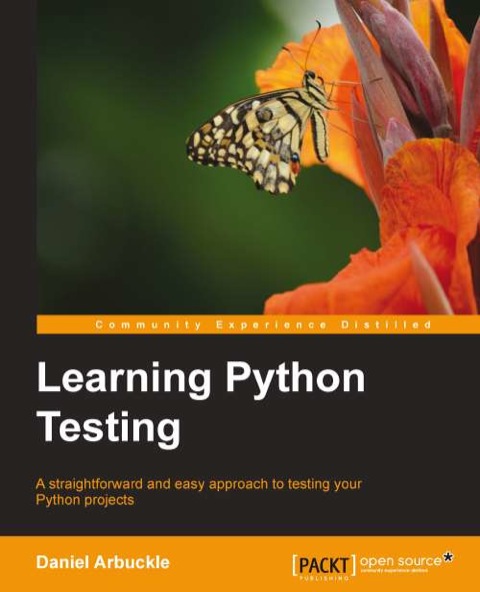
Learning Python Testing PDF
Preview Learning Python Testing
A straightforward and easy approach to testing your Python projects
About This Book- Develop your knowledge and skills to increase your confidence in tackling new challenges
- Guides you through the tools of automated testing in Python 3 with practical and real-life examples
- Shows you step by step how to turn testing from a burden into a benefit
This book is ideal if you want to learn about the testing disciplines and automated testing tools from a hands-on, conversational guide. You should already know Python and be comfortable with Python 3.
What You Will Learn-
Make testing easy and convenient with powerful tools such as doctest, unittest, and Nose
-
Walk through the test-driven development process step by step
-
Translate specification documents into actionable tests
-
Write tests that highlight exactly where a bug resides
-
Build on the basis of unit testing to be able to test a complete software system
-
Use unit testing to drive development and discover how this can make the process faster
Automated testing is the best way to increase efficiency and decrease the defects of software testing. It takes away much of the effort on your part so that you can find bugs early and easily. The Python unit testing framework makes it easy to write efficient automated test cases in Python. Applications involving many paradigms and styles can be very complicated to test, but with the right tools, testing becomes the simplest part of the development process.
This book starts with a short introduction to testing, and then introduces the doctest tool, both in terms of practicalities and how it fits into the testing environment. From there, the discussion proceeds to unittest.mock and mock objects, and to unittest. Next, Nose is introduced and discussed. Later on, focus turns from the tools themselves toward best practices and disciplines of testing. Finally, the integration of testing with existing build processes and toolchains is covered. By the end of this book, you will know how to use automated testing quickly and easily and in a way that helps catch bugs early and fix them.
**
About the AuthorDaniel Arbuckle
Daniel Arbuckle received his PhD. degree in Computer Science from the University of Southern California in 2007. He is an active member of the Python community and an avid unit tester.
